Phil Mickelson hates me. In fact, if you’ve got a moment, he’s hated me since Friday 17th August 2001 when we met over a microphone just outside the scorer’s hut at the 83rd USPGA Championship at the Atlanta Athletic Club in Duluth, Georgia. If memory serves, it was around lunchtime.
I was moonlighting; Phil, you’ll not be surprised to learn, was playing golf. Truth to tell, he was playing indecent golf, tacking a second round of 66 onto an opening round of 66 to be slap- bang in contention for what would’ve been his first major had David Toms – spoiler alert – not drained a dead-eye, twelve- footer on the eighteenth green in the Sunday twilight to pip him by one. No matter, this was the Friday, Mickelson was top of the leaderboard and, you’d have thought, in a chirpy mood. How wrong can a man be?
SIMMONS: (Jauntily) ‘Phil Mickelson, very well played; a 66 today to add to the 66 of yesterday. Did that feel like Groundhog Day or were they two very different rounds of golf?’
MICKELSON: (Looking like a man who’s suddenly been hit with a halibut) ‘Er, well, I don’t know what Groundhog Day feels like but … ’
SIMMONS: (Totally – fatally – misjudging the mood, the man and the moment) ‘Well, it’s when a day repeats itself. You know, the film with Bill Murray and Andie Wosshername from a few years back … ?’
Alas, Philip did not know the film with Bill Murray and Andie Wosshername from a few years back and thus did confusion quickly give way to ill-disguised contempt; Mickelson, clearly, yet incorrectly, deducing that I was mocking him and fixing me with a look that could’ve fried a five-iron.
There was a truly gruesome pause, three seconds which felt like three light years. My headphones fell stony silent, unusually given we had a director who was so fond of the sound of his own voice he often interrupted himself just to try to get a word in edgeways. But, like everyone else, he was suddenly agog to find out whether Mickelson was going to stick or twist. Was he about to give me a colonoscopy with my own microphone or would Lefty just suck it up, grit his teeth and talk about his round?
Mercifully, Lefty sucked it up, gritted his teeth and talked about his round; the receptive greens, the mischievous crosswinds, his silken putter. Essentially, it was exactly the same spiel he’d just given the bloke from NBC but with extra ice and a hefty squeeze of lemon, not that I was listening since I was far too busy kicking myself for serving up a quirky question to a man who, as I should’ve known, doesn’t do quirk. Should I apologise? Should I try somehow to re- ingratiate myself? Should I try to smooth things over? Since I was, by now, a shambles of conflicting thoughts, I did all three.
SIMMONS: ‘Phil, look, thanks for your time, good luck on the weekend and sorry about the ‘Groundhog Day’ thing. But if you do get a chance one evening, it’s really not a bad film … ’
Too late. Phil was walking. Phil was gone. Two and a half hundredweight of tumbleweed blew across the screen while, back on the headphones, the director was now laughing so hard he was almost soiling himself. Laughing at me? Laughing with me? Who could tell? Who cared? Apart from Phil, obviously. Phil cared so much he never spoke to me again.
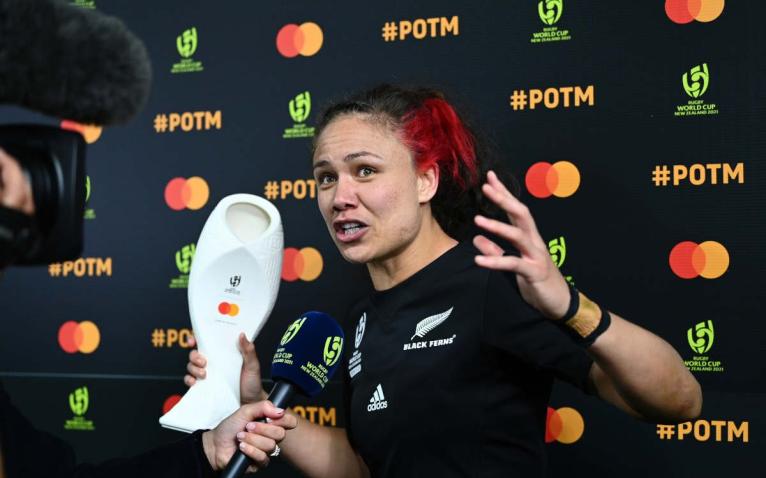
So, not only did I learn a priceless lesson – never make oblique cinematic references to left-handed golfers during live TV interviews at major golf tournaments held in the state of Georgia – but I’ve quietly carried my small burden of shame ever since; the miserable knowledge that a six-time Major Champion thinks, and will forever think, that I’m an utter twat. And, truth to tell, it’s been tough. Even when Phil threw Tom Watson under the bus at the 2014 Ryder Cup at Gleneagles, even then I didn’t sense quite the same hideous, Atlanta Athletic Club animus.
But, hey ho, such are the occupational hazards of the chequered flag interview; indeed, the glib, journalistic response would presumably be: ‘Look, if you’re not pissing someone off, you’re not doing your job properly’, and, no question, there’s an awkward, inescapable grain of truth in that. But if this was the only thought that got you out of bed in the morning, then, frankly, you’d probably be much better suited to a career in wheel clamping.
So, where do we start with all this? Well, if we’re defining our terms, the ‘live’ post-match sports interview is known in telly- speak as ‘The Flash’, a reference – certainly in my case – to its immediacy and brevity rather than its illumination or brilliance: an unwritten assumption of custom and precedent with its own unspoken ritual, etiquette, dynamics and boundaries of decency. In that sense, and in only that sense, it’s a little like marital sex.
It’s an articulate sport which offers the kind of emotional intelligence, candour and humour you don’t always find elsewhere. Ruby Tui, would be the perfect example
No question, if you’re kerbside on the streets of rugby union, you can count yourself blessed. It’s an articulate sport which offers the kind of emotional intelligence, candour and humour you don’t always find elsewhere. Ruby Tui, would be the perfect example; indeed, there’s a school of thought which says that every match should end with a Ruby Tui interview, irrespective of whether she was actually playing. I wouldn’t disagree.
But even in as generous a sport as rugby, ‘The Flash’ can be a lottery and, like love, it can come in many guises. It might be a sunny skip through the tulips hand-in-hand with a chipper CJ Stander or a blindfold stumble through an uncharted minefield with a hacked off Shaun Edwards. Trust me, there is no mistaking the difference between Shaun with his fur up and a ray of sunshine. Words are often utterly – and gloriously – superfluous.
But given finding the words is what you’re paid for, what do you ask? And how do you ask it? Do you get forensic or do you stay circumstantial, bearing in mind you’ve probably got sixty, possibly, ninety seconds top to tail? And, above all, where do you go when the ‘Player of the Match’ can’t take out his gumshield because his teeth are in the dressing room or, instead, turns out to be a newly-signed Georgian second row whose breadth of smile is in inverse proportion to his breadth of English? Again, like love, the post-match interview can be a journey into the unknown.
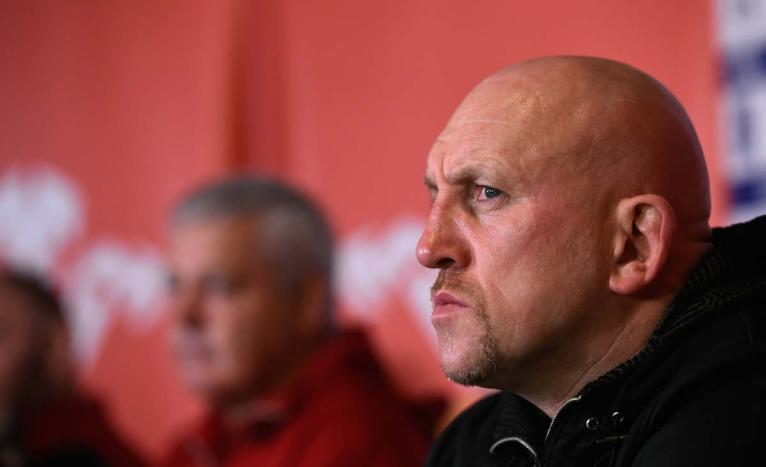
Essentially, the genre sub-divides into two, obvious categories, a ‘winning’ interview being a very different animal to a ‘losing’ one. Winning, like death, pays all debts, so these conversations tend to run on well-oiled rails, the exception being when you’re talking to the riot of lunacy that is Joe Marler and you’re standing there in a haze wondering whether you’ve lost your donkey or found a rope. Certainly, if Harlequins have just won and you’re a live broadcaster with a delicate disposition or a heart murmur, stick with Danny Care.
Losing interviews, however, are where pitch-side monkeys earn their peanuts; indeed, grilling a guy who’s just spent every bean in his body only to come second in a two-horse race always leaves you walking a tightrope of barbed wire between empathy and autopsy. In fairness, credit to them for fronting up but, please, be careful. The loveable Ben Youngs will generally and generously chew over a defeat as though it were some small form of catharsis but the equally loveable Peter O’Mahony will invariably treat a post-match inquisition as a trespass on private grief. You can ask much the same questions of both but your bedside manner will need bespoke tailoring to suit.
This, though, is the art of being TV’s pitch-side poke; as fairly, as equably and as considerately as you can, getting players and coaches to share what they’re really thinking or, at worst, to supply enough dots for the discerning viewer to be able to join them up and get the picture. Top to bottom, that’s it. Anything else is just advertising.
You may use only five cents of your candle-lit hours of homework yet that solitary nickel can sometimes buy you a one hundred dollar interview.
In terms of what to ask, you’re probably looking at three talking points irrespective of whether you’re alongside a winning or a losing connection, these being: (a) how do you feel about the way the game went (b) why do you think the game went the way that it went and (c) given the game went the way that it went, where do you think that leaves you now? You can contract or expand this ‘emotion/analysis/context’ rubric to suit the moment and the available time but this feels like your basic framework.
The trick, of course, is to find an original means of dishing up your staple fare given you can’t just parrot the same bollocks after every game; well, you can and, unfortunately, a few do but you end up sounding like ‘The Daily Express’. Preparation is paramount; research is indispensable. You may use only five cents of your candle-lit hours of homework yet that solitary nickel can sometimes buy you a one hundred dollar interview. But the intuition of the moment is where it’s at; do I know this guy, how hard do I need to push, and what exactly will prompt him to bare his rugby soul in a plump minute. I won’t lie; it can be ticklish.
If your man’s on the rough end of the scoreline, the key to ‘The Flash’ invariably lies in the 5-20 seconds the two of you are lingering on the edge of the dance-floor waiting for the music to start. This is your ‘read-the-room’ time. Is he offering you a rueful smile, a series of indiscreet profanities about the TMO or is he studiously avoiding eye contact? Does he seem collected and composed or is he ready to stick his fist through the sponsors’ backdrop? The best policy is probably to shake his hand, thank him for dropping by, mutter a small commiseration and, thereafter, take your cue from him; in other words, speak if you’re spoken to but otherwise button it and breathe in the view. It’s a little like meeting royalty.
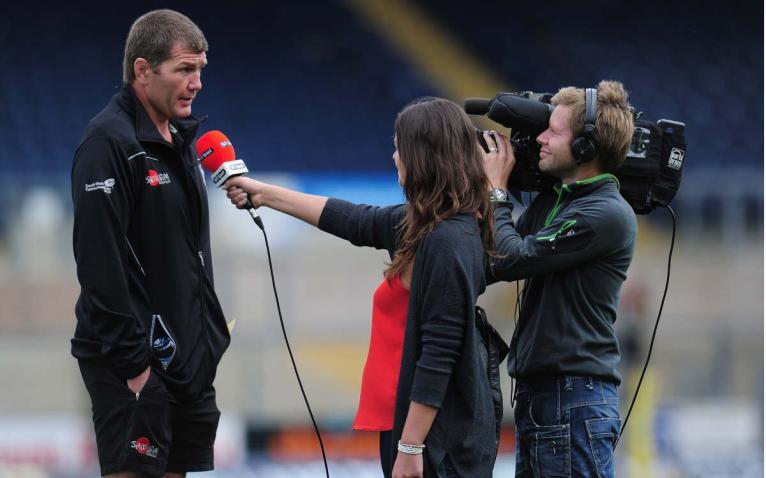
No question, you need a copper’s nose. Does your interviewee, instinctively, despise journalists – ‘bad breath and ugly shoes’ – or is he a bit more Sam Warburton? Is he naturally a man of few words or will he cover all three of your questions with his first answer – Rob Baxter – and suddenly leave you floundering to fill the last twenty seconds? Preparation, again, is invaluable; likewise, keeping your wits in your pocket.
But there’s a second, small distinction to be drawn here between players and coaches. If players – by and large – tend to accept microphones intruding on a defeat, coaches – on rare occasions – do not. When you’re ‘The Boss’, losing is almost visceral and understandably so given your neck is on the block. A week of 14-hour days, sleepless nights and a tetchy meeting with the CEO last Tuesday may just have culminated in a bitter, two-point defeat, so being confronted five minutes afterwards by some gurning hack who may well have ‘right’ and ‘left’ written on their socks can often feel like an impertinence.
If you reversed into Rob Baxter in a car-park, Rob would probably end up buying you a beer while you swapped insurance details. Warren Gatland? Well, perhaps less so.
Most grit their teeth and deal with it. One or two do not; indeed, tight lips, four-mile frowns and a tart text later that evening from the Team Media Manager are far more likely to be a prompted by a pissy coach than a pissy player. Part of this, you suspect, stems from an ingrained dislike of being the accusative case rather than the nominative. Their weeks are spent asking challenging questions of others – players, assistant coaches, analysts – yet they suddenly find themselves skewered by bright lights and nosy cameras with someone else driving a painful conversation. This is precisely why a terse, almost passive-aggressive tone is sometimes adopted in an attempt to reverse the dynamic and, in fairness to Eddie Jones, he’s very good at it.
Look, it’s unusual but it happens and when it does, it can often make for what ghouls and TV producers glibly refer to as ‘good telly’. Is Michael Cheika going to address your darker purposes or simply stick his fist through your chin? Conversely, other coaches prefer an almost inscrutable approach. If you muted the volume on your TV when Steve Hansen used to come into bat, you’d often struggle to work out whether the All Blacks had just won or lost. Rob Baxter – yes, him again – falls into the same category; indeed, if you reversed into him in a car-park, Rob would probably end up buying you a beer while you swapped insurance details. Warren Gatland? Well, perhaps less so.
Frankly, you could write a doctoral thesis on the art of the post-match interview and, indeed, Dr. Kieran File has done just that. These days, Kieran is an Associate Professor of Linguistics at the University of Warwick but, back home ten years ago, his doctorate at Victoria University in Wellington centred on what he called, ‘The Conciliatory Media Interview Genre’; namely, how rugby interviewers on New Zealand TV routinely prefer ritual appeasement to rigorous analysis.
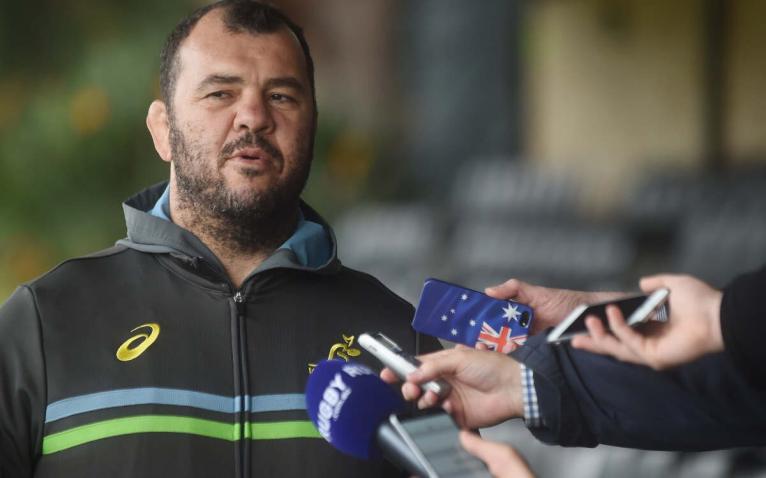
His thesis is a fascinating read. He itemised, among other things: (i) tokens of empathy (ii) the use of nicknames ‘to construct solidarity’ (iii) the ‘shared socio-historical backgrounds’ of ex-players talking to current players and (iv) ‘positively-orientated’ questioning to teams who’ve performed poorly. In fairness, this overtly chummy approach may very well lead to genuine enlightenment for the viewer but, alternatively, it might just give the impression that interviewers are more concerned with staying onside with their interviewees than they are in asking relevant questions.
Or, indeed, asking any questions at all. Kieran’s paper offered thirty-six random examples of media exchanges across Super Rugby – in fairness, this was a decade ago now – of which just three were prompted by a direct query. The majority boiled down to such offerings as: ‘I imagine that’s a pretty pleasing win particularly coming back from South Africa; you’ve had a number of injuries to contend with and The Chiefs were always gonna be difficult tonight …’ the obvious problem being that if the so-called question is simply the answer in a ribbed condom, what’s the point in asking it?
Look, you don’t have to get routinely arsey here. This isn’t ‘Newsnight’ and while the Paxman approach is rarely relevant in the rugby world – ‘why is this bastard lying to me?’ – there’s some obligation to allow interviewees to account for themselves. Or, indeed, to insist upon it, not least when a player’s just been substituted with a fake blood capsule, or a coach has just lost six straight games together with half the dressing-room and is simply clinging on for the severance package.
While the job may look like money for old rope when you’re sitting on your sofa with a cold one, there are times when you’re juggling hedgehogs. You’re bouncing off the satellite from Sydney, it’s pissing down, Michael Hooper is standing patiently looking as though he’s been painted by Picasso
But the brutal truth is that any interview is usually only ever as good as whoever’s at the sharp end of the microphone and that’ll depend entirely on what mood gets brought to the moment. On a sunny Wednesday in the rose garden at the England Team hotel in stockbroker Surrey, Eddie Jones can be a one-man circus; playful, candid, forthright and wickedly funny. But catch him pitch-side at Twickenham after Ireland have just walked off with the win and you might well need eight questions to fill an unforgiving minute. It’s like squeezing an empty tube of toothpaste.
And while the job may look like money for old rope when you’re sitting on your sofa with a cold one, there are times when you’re juggling hedgehogs. You’re bouncing off the satellite from Sydney, it’s pissing down, Michael Hooper is standing patiently alongside looking as though he’s just been painted by Picasso, you’ve no floor manager, the cameraman’s cable has just come unplugged, some jobsworth is insisting that the sponsors’ boards need to be moved two metres to the right and the producer back in London is giving you a list of clips they’re going to float over the next-but-one interview with Owen Farrell, the equivalent of being badgered about the dessert when you’re trying to stick a fork in the starter.
Meanwhile, the director’s having a row with the vision mixer, the audio engineer is asking you for a sound-check, you’re trying to listen to what’s being said in the studio in case there’s something you need to throw in to the coming conversation and the Wallabies’ Media Manager is warning you in words of few syllables that if the interview doesn’t start in the next five seconds, mate, Michael will be taking a hike next-door to ‘Fox Sports’. This is usually the point when your talkback dies, you disappear behind the dark side of the moon and by the time you’ve re-established contact, Michael’s soaped, shaved, had five stitches in his left eyebrow and is enjoying a well-earned ‘Tooheys’ in a bar somewhere near Darling Harbour.
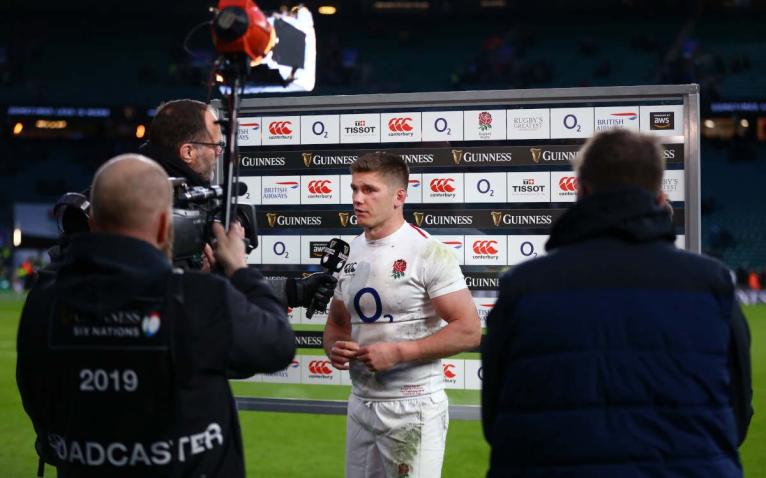
There are times, too, when the narrative of a broadcast paints you tight into a corner. Crapping on a team’s performance from the safety of a pundit’s chair in a warm studio surrounded by pots of make-up and packets of chocolate digestives isn’t that difficult: ‘ … Simon, that’s the worst Leicester performance I’ve ever seen; gutless, headless and just not up to scratch. Head Coach, Brian Piss-Poor, has been on borrowed time for the past month and, frankly, he needs to quit and quit now …’
But when Simon then turns to the camera and says, ‘Strong words, there, from Alan Windbag; well, let’s hear from the Leicester Head Coach, Brian Piss-Poor; he’s down in the tunnel right now … ’ where exactly are you supposed to pitch your first question? ‘Brian Piss-Poor, commiserations on yet another thumping defeat but, taking the positives, only the one red card in the second half …?’
It can be awkward and you can’t duck it, whether you agree with the premise or not; indeed, there are times when, as politely as possible, your job is to count the dead and bayonet the wounded. There’s also a hefty measure of journalistic pressure at play here. If the Sunday papers are running quotes with Stuart Lancaster that were conspicuous by their absence in your interview with him on the Saturday when England were schooled by Australia at Twickenham, then Monday’s probably not the best day to wander into the office and ask for a pay rise. It’s a competitive business.
Don’t offer lame statements, don’t make it personal, keep the questions as short as possible – it’s about what they’ve got to say, not you – let the pauses, sighs and silences suck out the truth
And you will get it wrong; you’ll misjudge the mood, you’ll miss the obvious question, you’ll press the wrong button or you’ll say something crass. Sometimes only you will notice and sometimes social media will not only notice for you but damn you as a one-eyed, piss ignorant, sour-faced vulture. Either way you’ll drive home at the speed of a hearse with your phone switched off, the best remedy when you finally get there being a patient partner, a loyal dog and a stiff whiskey. And not necessarily in that order.
So, in a nutshell? Well, never forget it’s a conversation not an interrogation; cultivate an air of enthusiastic curiosity; follow the thread if it’s heading somewhere more interesting and if you knock once and get no answer, tighten your girdle and knock harder. It’s amazing how often an apparently bolted door will suddenly, sometimes almost sheepishly, open up.
There’s more. Don’t offer lame statements, don’t make it personal, keep the questions as short as possible – it’s about what they’ve got to say, not you – let the pauses, sighs and silences suck out the truth; be prepared to question the answer to the question and always make sure you shake hands and say ‘thank you’ when the interviewee arrives and takes his leave. It’s just good manners. Then again, be careful with the hand- shaking. One or two – Dean Richards springs to mind – have a grip that can crush pebbles; I strongly suspect it’s reserved purely for media purposes.
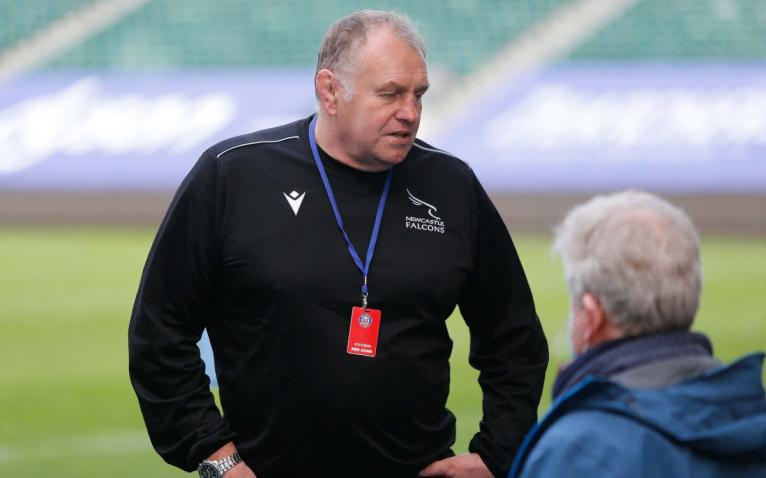
Two things, though, above all. The first is listen. The amount of times that answers open doors to more intriguing lines of enquiry or offer a glaring inaccuracy, or simply dodge the question completely without being followed up, fact-checked or challenged are too numerous to count. Viewers aren’t going to hang around post-match to listen to someone reciting the Media Training Manual.
The second, and arguably the most important skill, is the ability to speak fluent body language. An interviewee’s demeanour, choice of words and length of answer will often speak volumes. But deeper than that, what the body language frequently tells you is when you’re getting close to the nuts of the issue.
One current international has a habit of rubbing his eyebrow with his thumb when he’s trying – quite reasonably – not to offer you an inconvenient truth; another disengages eye contact and looks left and right, for all the world as though he’s about to cross the road, while another flosses his ears when in a tight corner. Hands to head are a dead giveaway.
The point being that if you’re paying attention, you should instinctively sense when you’re in the red zone and there are either (a) opportunities to put some points on the scorecard or (b) a better than evens chance of getting your balls bitten off live on television. Again, your next step can be a devilish decision but while the better part of valour may be Falstaffian discretion, if you’re a genuine explorer, you have to be prepared to die lost.
If you didn’t catch Ronan O’Gara in BT Sport’s pitch-side studio post La Rochelle’s Champions’ Cup Final with Leinster, you missed five minutes of television gold; an entertainment, an honest and heart-warming insight and an absolute rugby education
Are post-match interviews better or worse than they used to be? In many ways, I think they’re better, although the sooner the sport blowtorches the ‘photo-bomb’ sponsors’ backdrop, the better. Are they as valued as they should be? Too often, they’re not – insufficient time, thought or resources – which is a shame because, done properly, they can be the cherry on the top of the entire broadcast. If you didn’t catch Ronan O’Gara in BT Sport’s pitch-side studio post La Rochelle’s Champions’ Cup Final with Leinster, you missed five minutes of television gold; an entertainment, an honest and heart-warming insight and an absolute rugby education.
Unquestionably, though, the zeitgeist has changed. Back in the day, you could interview Brian Moore in a dugout at Sale two minutes after he’d just been sent off – steady as you go with an unhappy lawyer – or, memorably, Martin Johnson after he’d been yellow-carded for a straight uppercut during a game at Saracens: ‘Look, if he hadn’t started bleeding, it wouldn’t have been a yellow, would it?’ which, to my mind, remains one of the most glorious mitigations in the history of any sport.
But the odds on any of this happening in today’s micro- managed, media world of rugby are so infinitesimally small that you could shove them up an earwig’s arse and still have room for Paul O’Connell’s apostrophe. And more’s the pity. But even so, when they’re done well, post-match pokes can be uplifting, life-affirming, candid and informative. The best advice? Just mind your Mickelsons.


Couldn't stop laughing....brilliant
Brilliantly written article Mr Simmons! Clever, funny witty and ohh so true! You can keep your job Sir!